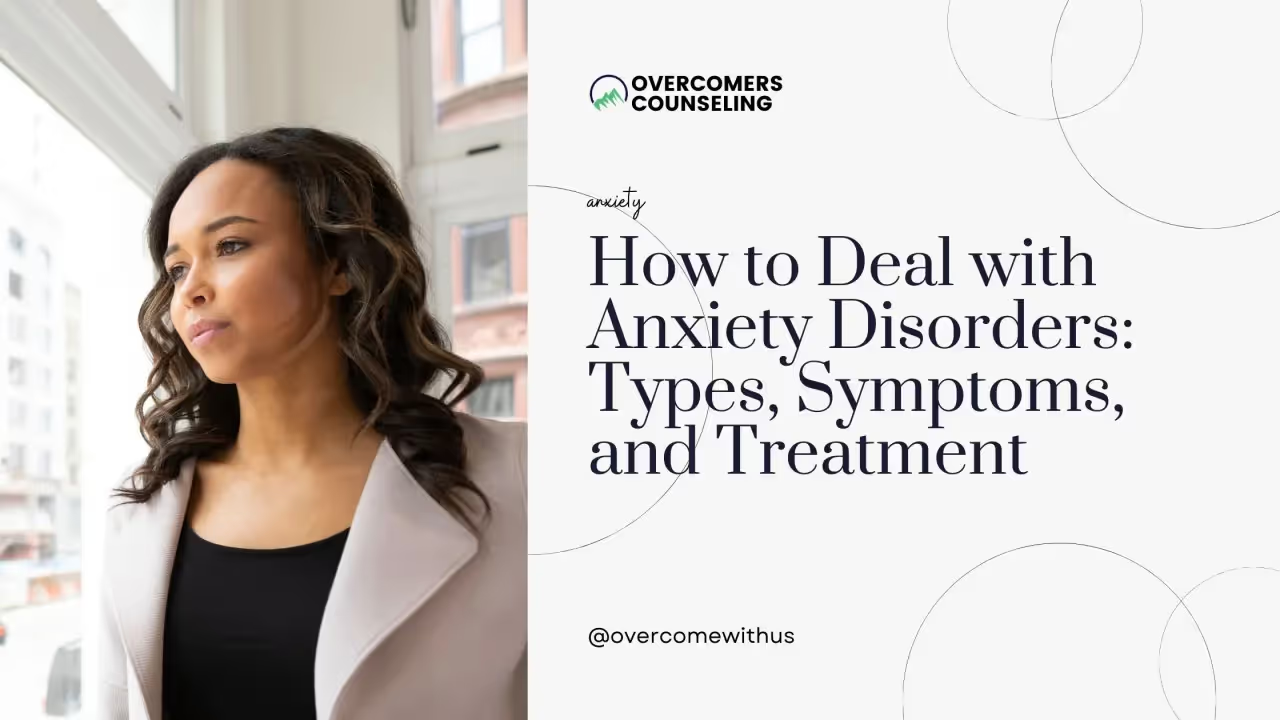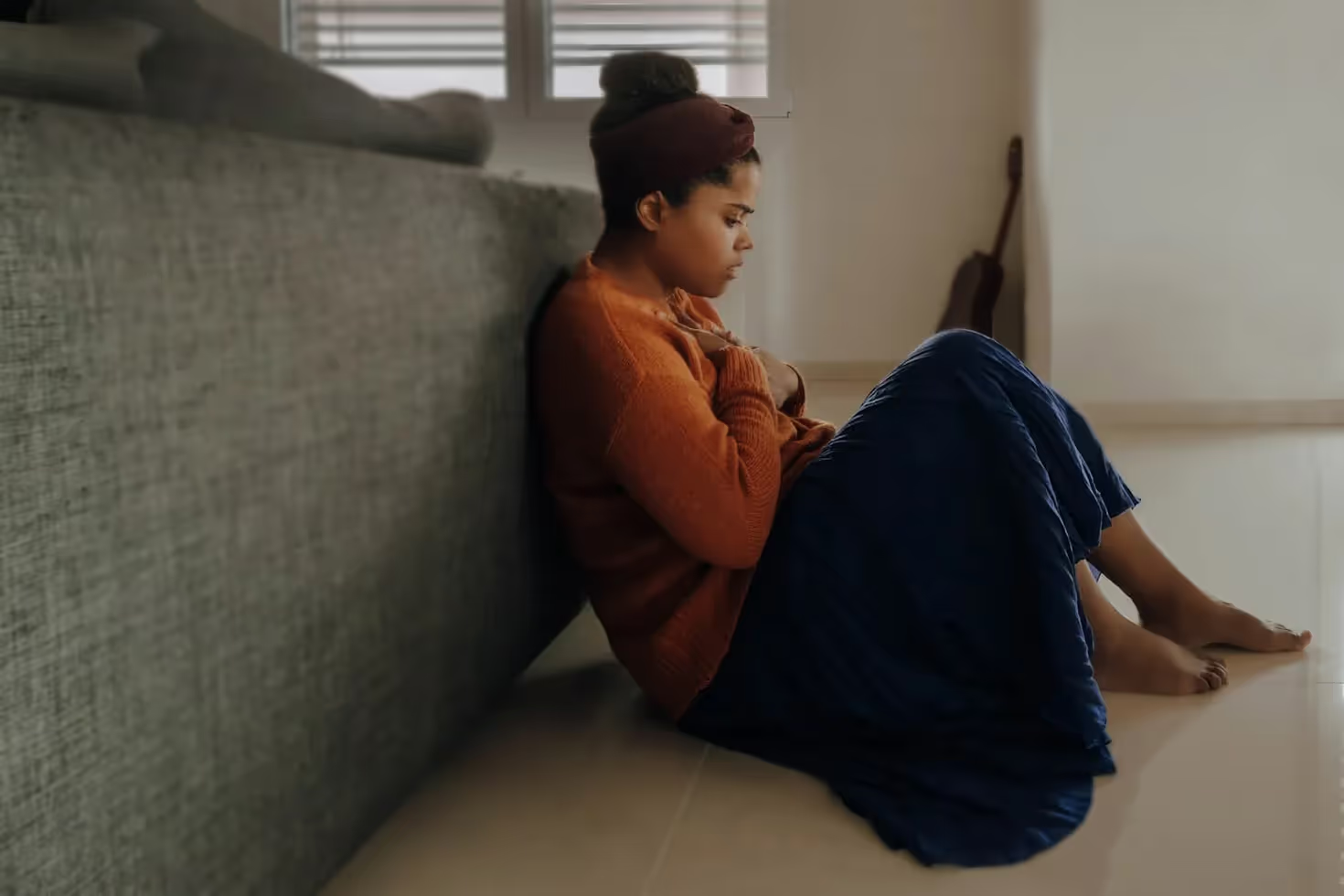Anxiety disorders are the most common mental illness in the United States, affecting 40 million adults. That's 18% of the population! If you are one of...

Anxiety disorders are the most common mental illness in the United States, affecting 40 million adults. That's 18% of the population!
If you are one of those people, you know that anxiety can be a real pain. It can cause all sorts of problems in your life, from making it hard to sleep at night to causing panic attacks.
Anxiety disorders range from mild to severe and can be triggered by a variety of factors.
Some people may have a genetic predisposition to anxiety, while others may develop it in response to stress or trauma. Anxiety disorders are generally treated with therapy, medication, or a combination of the two.
One of the most common types of anxiety disorder is generalized anxiety disorder
In this blog post, we will discuss the different types of anxiety disorders, their symptoms, and how they can be treated.
Generalized anxiety disorder (GAD) usually involves feeling worried and stressed about many different things. People with GAD may worry about their health, money, family, work, or school. They may feel like they can't control their worry.
They may also have symptoms such as trouble sleeping, feeling tired, or difficulty concentrating.Symptoms of GAD include:

Panic disorder is characterized by sudden and repeated episodes of intense fear. These episodes, called panic attacks, can last for several minutes or longer. They may include a pounding heart, sweating, breathing problems, dizziness, and feeling like you are going to faint or die. Some people also have chest pain, a racing heartbeat, or stomach discomfort during a panic attack.Symptoms of panic disorder include:
Social anxiety disorder (SAD) is a type of anxiety disorder that causes people to feel extremely nervous and self-conscious in social situations. SAD can make it hard to work, go to school, or even leave the house. People with SAD may worry about being judged by others, making mistakes, or being embarrassed. They may avoid social situations or feel very anxious in them.Symptoms of SAD include:
There are many different types of phobia-related disorders, such as agoraphobia, claustrophobia, and specific phobias (such as a fear of heights, animals, or blood). Phobia-related disorders are characterized by a persistent and excessive fear of an object or situation. People with these disorders may go to great lengths to avoid the object or situation, which can interfere with daily activities and cause significant distress.Symptoms of phobia-related disorders include:

Both genetic and external factors may contribute to the likelihood of acquiring an anxiety disorder, according to scientists. It is not known exactly how these factors interact, but it is believed that they play a role in regulating the fear response.Environmental factors:
Other factors include:Gender: Women are more likely than men to experience anxiety disorders.Age: Anxiety disorders often first appear in childhood or adolescence.Family history: If you have a family member with an anxiety disorder, you may be at increased risk of developing one yourself.Genetics: Anxiety disorders may be partly due to genetic factors.Certain personality types: People with certain personality traits (such as perfectionism or impulsiveness) may be more likely to develop anxiety disorders.Anxiety disorders are treatable, but only if you seek out treatment. If left untreated, anxiety disorders can have serious consequences, such as:
You can find help for anxiety disorders from a mental health professional.
Anxiety disorders can be treated with medication, therapy, or a combination of the two.Psychotherapy:Cognitive-behavioral therapy (CBT) is a type of psychotherapy that can help people with anxiety disorders. CBT teaches people different ways of thinking, behaving, and reacting to situations that help them feel less anxious and fearful.Exposure therapy is a type of CBT that involves gradually exposing a person to the object or situation that they fear. This can help them learn to manage their anxiety and eventually become less afraid of the object or situation.Acceptance and Commitment Therapy is another option that can help people manage their anxiety. This therapy focuses on helping people accept the things that they cannot control and commit to taking action in areas that they can control.Support groups:Joining a support group for people with anxiety disorders can provide social and emotional support. These groups can also offer education about anxiety disorders and help people find resources for treatment.Lifestyle changes:Making lifestyle changes, such as getting regular exercise, eating a healthy diet, and reducing stress, can also help reduce the symptomsStress Management:Stress management techniques, such as relaxation techniques, can help people with anxiety disorders. Relaxation techniques include things like deep breathing, meditation, and yoga. These activities can help to calm the body and mind and reduce stress.
Anxiety disorders are a common and treatable type of mental illness. If you are experiencing symptoms of an anxiety disorder, it is important to talk to a doctor or mental health professional. There are many different types of anxiety disorders, and treatment can vary depending on the type of disorder.Cognitive-behavioral therapy, exposure therapy, and acceptance and commitment therapy are all effective treatments for anxiety disorders.
Support groups and lifestyle changes can also help to reduce the symptoms of anxiety disorders.
If you are struggling with an anxiety disorder, there is help available.There's no need to suffer from an anxiety disorder in silence. With treatment, you can improve your symptoms and live a full and happy life.
It's important that you feel comfortable discussing personal matters with your therapist in order to open up and get more out of therapy sessions; therefore finding someone who meets certain criteria like experience level, expertise areas, and personality is key when selecting a therapist who can give meaningful feedback about how best handle issues related to anxiety or other mental health concerns.
To reduce your anxiety, you can practice relaxation techniques such as deep breathing, progressive muscle relaxation, guided imagery, and mindfulness practices. Additionally, regular exercise has been found to be beneficial in managing stress and improving mental health.
Yes, Medicaid provides insurance coverage for therapy services specifically designed to help individuals struggling with anxiety, depression, and other mental health conditions.
The duration of anxiety counseling varies for each individual, depending on the severity of their anxiety and their progress in therapy. Our therapists will regularly assess your progress and adjust your treatment plan as needed.
Addressing anxiety is crucial because it can significantly impact your quality of life and overall well-being. Left untreated, anxiety can lead to more severe mental health issues, relationship problems, and difficulty functioning in daily life.
Other activities which have been found helpful in reducing both immediate feelings of anxiousness and long-term anxieties associated with chronic disorders include yoga, journaling, nature walks, art therapy, volunteering, and other low-stress activities. Additionally, developing a healthy lifestyle incorporating adequate sleep, physical activity, and nutritious meals can help reduce overall stress levels.